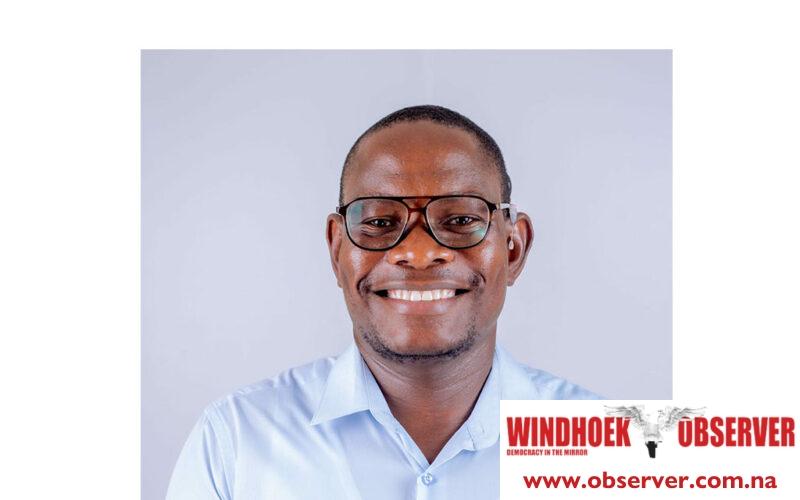Hertta-Maria Amutenja
The deaf community in Namibia is calling for greater inclusion and access to information during election campaigns.
Paul Nanyeni, the national executive director of the Namibian National Association of the Deaf (NNAD), said, despite promises of inclusivity from political parties, deaf voters have struggled to participate fully due to the lack of sign language interpreters at rallies and the failure to translate manifestos into Namibian Sign Language.
Nanyeni brought attention to these issues, pointing out that the deaf community frequently misses out on important campaign discussions.
“There are no sign language interpreters at gatherings, and the deaf do not know what’s being promised. Not a single manifesto was translated into sign language,” Nanyeni said.
The NNAD estimates that there are over 7 000 deaf people in the country and 60% of them are eligible voters.
He applauded SWAPO for printing its manifesto in braille.
“A visually impaired person can still attend rallies and listen to what is said. So they ought to focus on sign language, but even so, they do not provide interpreters at their gatherings,” he said.
Nanyeni expressed disappointment in the lack of engagement from political parties but acknowledged some positive steps taken by the Electoral Commission of Namibia (ECN).
“We engaged ECN to make voter education accessible through sign language, but this is not fully done. However, ECN did include us at their engagement meetings and provided an interpreter, which we appreciate,” he said.
He also praised the Independent Patriots for Change (IPC) in the Erongo region for their inclusiveness, which allowed many deaf members to participate in their campaign due to the presence of a sign language interpreter.
Nanyeni urged other political parties to follow suit.
“All of them should sell themselves to us. We are waiting for a good offer so we can vote,” he said.
He also called on political parties to budget for interpreters at rallies, emphasising that promises alone are not enough.
Nanyeni added that deaf people also need self-representation.
He asserts that many deaf political aspirants and card-carrying members remain outside the party ranks.
“They should be incorporated into the ranks and files of their political parties to infuse a good blend of diversity and inclusion,” he said.
The Namibia Empowerment Fighting Corruption (NEFC) party has stated in their manifesto that they plan to include two members from that group in their National Assembly 2025–2029 candidate list to enhance diversity.
This promise alone, according to Nanyeni, is not enough.
“We want to see the debates in the August house not only from our deputy minister but everyone in the house, using their common goals and common sense. Full inclusion and full human rights for the deaf can only be achieved if sign language is fully recognised,” she said.
Nanyeni added that the deaf are ready to vote for whichever party takes their needs seriously and not simply promises.
He called on political parties to use the remaining time to engage deaf people and persuade them to vote.
“This means coming with sign language interpreters and real doable ideologies, not simply promises that are unattainable. If you come telling us you will increase disability grants to 3000, that’s not empowerment at all. We need a tangible development that can start with quality Deaf education, access to health, housing, and employment creation!! We need to be independent and not simply rely on disability grants,” said Nanyeni.
He is also advocating for policy changes that will enhance the quality of life for the Deaf and other individuals with disabilities.
Meanwhile, the secretary general of the Popular Democratic Movement (PDM), Manuel Ngaringombe, acknowledged the challenges, particularly the cost of hiring sign language interpreters.
“One of the challenges we have is that the deaf interpreters are asking high prices to do the job. Yes, we don’t have a manifesto in deaf language, and we will see what we can do about that. It is indeed a helpful reminder. We will look at the challenges and see how to improve them,” Ngaringombe said.
Attempts to reach the ECN and SWAPO for comments on their efforts to make campaigns accessible to deaf voters were unsuccessful by the time of publication.
Independent Patriots for Change (IPC) spokesperson Immanuel Nashinge said they have a number of deaf members who requested their friends, who are not deaf, to translate for them at rallies.
“We don’t pay for the translator. They volunteer. We don’t just use translators for rallies but we have always used them for meetings. These are members of society who also contribute economically,” he said.
Nashinge said the party has tried to engage braille translators, but the charges are exorbitant.




